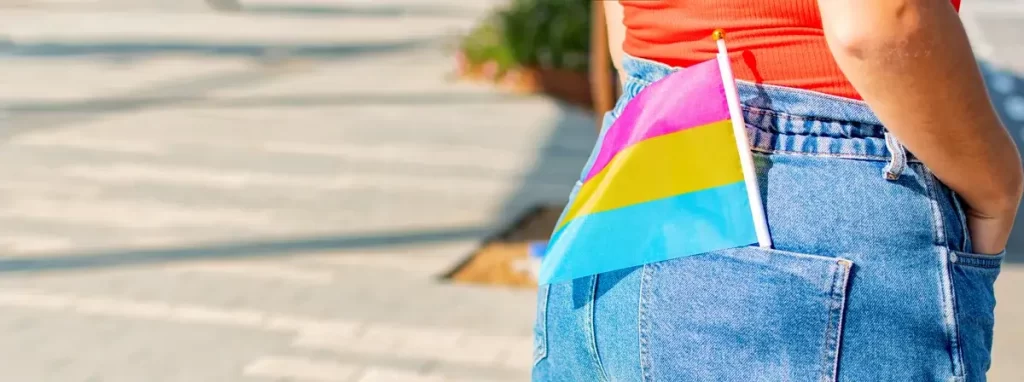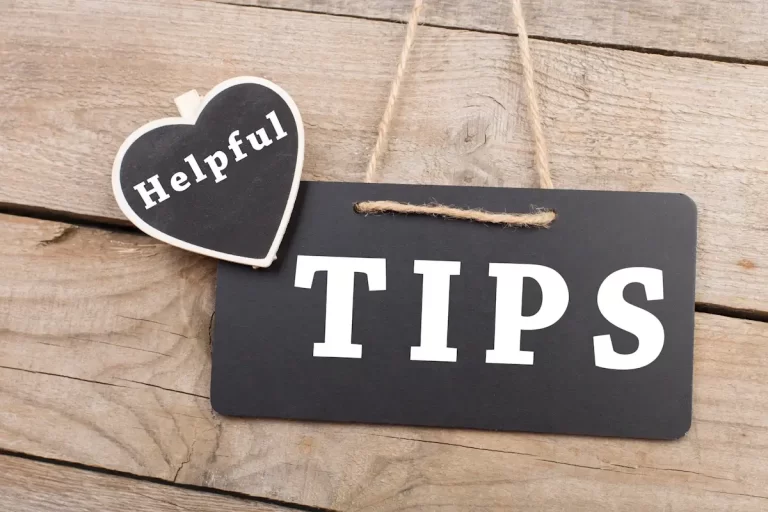In today's diverse and inclusive world, love knows no boundaries. People from all walks of life come together to form beautiful relationships, and that includes cisgender and transgender individuals finding love and companionship. As we celebrate the unique connections between cisgender and transgender partners, it's essential to acknowledge the challenges and rewards that come with navigating these relationships. In this article, we'll explore the ins and outs of dating a cisgender partner, offering insights and advice to help create strong, lasting bonds between cisgender and transgender individuals.
The Challenges of Dating a Cisgender Partner
Trans women who date cisgender partners may face a unique set of challenges that can impact the overall health and success of their relationships. These challenges often stem from societal expectations, stereotypes, and a potential lack of understanding or knowledge about transgender issues. By recognizing these challenges, both partners can work together to address them and build a strong, supportive foundation for their relationship.
| Challenge | Description |
|---|---|
| Societal expectations | Trans women and their cisgender partners may face judgment and scrutiny from society, which can put pressure on the relationship. Prejudices and misconceptions about trans women may also impact how others perceive the couple, leading to social ostracism or discrimination. |
| Lack of understanding | Trans women and their cisgender partners may face resistance or disapproval from family members and friends, which can strain the relationship. Both partners need to work together to create a support network and navigate these challenges. |
| Differences in experiences | Trans women and their cisgender partners may have distinct life experiences and perspectives, which can sometimes cause misunderstandings or conflicts. These differences may include transitioning, hormone therapy, and the emotional impact of living as a transgender individual. |
| Disclosure and privacy | Trans women may face the challenge of deciding when and how to disclose their transgender identity to a cisgender partner. This can be a difficult and emotionally charged decision, as it may involve concerns about safety, acceptance, and potential rejection. |
| Family and Social acceptance | Trans women and their cisgender partners may face resistance or disapproval from family members and friends, which can strain the relationship. Both partners must work together to create a support network and navigate these challenges. |
| Legal and healthcare barriers | Trans women often face unique legal and healthcare challenges, such as difficulties accessing appropriate healthcare services, updating identification documents, and potential discrimination in the workplace. These challenges can indirectly impact their relationships with cisgender partners. |
By acknowledging and addressing these challenges, trans women and their cisgender partners can build stronger, more understanding, and supportive relationships. Open communication, education, and empathy are crucial in navigating these challenges together.
Navigating Societal Expectations and Stereotypes
When entering a relationship with a cisgender partner, transgender individuals may face societal expectations and stereotypes that can put a strain on the connection. From friends and family members questioning the relationship's validity to encountering misconceptions about trans dating, these challenges can be emotionally taxing. However, it's essential to remember that every relationship is unique, and overcoming these hurdles together can strengthen the bond between partners.
Addressing Potential Lack of Understanding or Knowledge
For some cisgender individuals, dating a transgender partner may be their first close interaction with someone from the transgender community. As a result, they might lack understanding or knowledge about transgender issues, leading to unintentional insensitivity or miscommunication. Open and honest conversations are key to bridging this gap. Sharing resources such as articles ‘Trans dating made easy’ and blog posts like ‘make up tips for trans women’ can help educate cisgender partners about the transgender experience and build a stronger foundation for the relationship.
Managing Differences in Experiences
Transgender and cisgender individuals often have different life experiences, which can sometimes create misunderstandings or challenges in a relationship. These differences might include navigating gender dysphoria, medical transitions, or unique experiences related to coming out as transgender. To ensure a healthy and supportive relationship, both partners should be open to learning from each other's perspectives and experiences. This mutual understanding fosters empathy and helps create a safe space for both partners to grow and thrive together.

The Rewards of Dating a Cisgender Partner
One of the most rewarding aspects of dating a cisgender partner is the opportunity to learn from each other's perspectives. By sharing their unique experiences, transgender and cisgender partners can broaden their understanding of the world and foster personal growth. This exchange of ideas and insights can enrich the relationship and create a deeper connection between partners.
Building a Strong Foundation of Trust and Communication
Trust and communication are critical components of any successful relationship. For cisgender-transgender couples, open and honest communication can help build a strong foundation for their partnership. By actively listening to each other's concerns, discussing their feelings, and addressing any challenges that may arise, partners can create a supportive and loving environment in which their relationship can flourish.
Celebrating and Embracing Diversity in a Relationship
Another reward of dating a cisgender partner is the chance to celebrate and embrace the diversity that each person brings to the relationship. This diversity can lead to a more enriching and exciting partnership, as both individuals share their unique experiences and perspectives. By embracing each other's differences, partners can create a more inclusive and supportive relationship that thrives on understanding and acceptance.
Tips for Navigating Differences in Experiences and Expectations
To navigate the differences in experiences and expectations between cisgender and transgender partners, open communication and active listening are essential. By creating an environment where both partners feel comfortable expressing their feelings and concerns, couples can better understand each other's needs and work together to address any challenges that may arise.
Educating Oneself and One’s Partner About Transgender Issues
Education plays a crucial role in fostering understanding between cisgender and transgender partners. By educating themselves and their partners about transgender issues, individuals can create a more inclusive and supportive relationship. Some helpful resources include blog posts like Gender Identity and TS Dating and dating trans women that provide insights into the transgender experience.
Establishing Boundaries and Respecting Each Other’s Comfort Levels
It's essential for partners in a cisgender-transgender relationship to establish boundaries and respect each other's comfort levels. This may involve discussing personal boundaries related to topics such as physical touch, public displays of affection, or discussing one's gender identity. By setting clear boundaries and respecting each other's needs, partners can create a safe and supportive space for their relationship to thrive.
Success Stories: Cisgender-Transgender Relationships
Real-life examples of successful cisgender-transgender partnerships demonstrate the potential for these relationships to thrive. Many couples have overcome the unique challenges they face and built strong, loving relationships based on trust, communication, and understanding.
For example, Janet and her cisgender boyfriend, Tom, have been together for several years. They met on My Transgender Cupid and instantly connected. Despite initially struggling with societal expectations and Tom's lack of knowledge about transgender issues, they worked together to educate themselves and create a supportive environment for their relationship. Today, they are happily committed and serve as an inspiration for other cisgender-transgender couples.
Another example is Sophia and her cisgender girlfriend, John, who found love on the same platform. They were drawn to each other's shared interests and quickly developed a deep emotional connection. By openly discussing their experiences and expectations, they established a strong foundation for their relationship. Now, they are proud to share their story and encourage others to embrace the possibilities of cisgender-transgender relationships.

Resources and Support for Cisgender-Transgender Couples
Navigating a cisgender-transgender relationship can be challenging, but numerous resources and support systems can help couples build strong, loving partnerships. These resources can offer guidance, information, and encouragement to help couples overcome any obstacles they may face.
Recommended Books:
- "The Gendered Brain: The New Neuroscience that Shatters the Myth of the Female Brain" by Gina Rippon – This book delves into the latest research on gender and the brain, providing valuable insights for couples seeking to understand each other's experiences.
- "Trans Bodies, Trans Selves: A Resource for the Transgender Community" by Laura Erickson-Schroth – This comprehensive guide covers various topics related to transgender experiences, making it an invaluable resource for both transgender individuals and their cisgender partners.
Websites:
- My Transgender Cupid Blog – This blog offers a wealth of information and advice on transgender dating, relationships, and other relevant topics, providing valuable insights for both cisgender and transgender partners.
- National Center for Transgender Equality – This website offers resources, information, and advocacy for transgender individuals and their loved ones, helping to promote understanding and support.
Support Groups:
- PFLAG – PFLAG is an organization that offers support for LGBTQ+ individuals and their families, including resources for cisgender-transgender couples.
- Gender Spectrum – Gender Spectrum provides resources and support for individuals and families navigating gender diversity, including support groups and workshops for cisgender-transgender couples.
By utilizing these resources and seeking support from others who understand the unique challenges and rewards of cisgender-transgender relationships, couples can build strong, loving partnerships that celebrate and embrace their differences.
Conclusion: The Importance of Understanding, Acceptance, and Love in Any Relationship
In the end, the foundation of any successful relationship, regardless of the genders involved, lies in understanding, acceptance, and love. While cisgender-transgender relationships may face unique challenges, they also provide opportunities for growth, learning, and a deeper connection between partners.
Understanding is crucial in any relationship, but it takes on particular importance in cisgender-transgender partnerships. Both partners should strive to educate themselves about the unique experiences and challenges faced by the other. By actively seeking information and engaging in open dialogue, couples can develop a strong sense of empathy and appreciation for each other's journey. The My Transgender Cupid blog offers valuable resources and insights to help couples gain a better understanding of each other's experiences.
Acceptance is another vital component in a healthy relationship. In a cisgender-transgender partnership, both individuals must accept and respect each other's identities and experiences. By embracing each other's uniqueness, couples can create a safe and supportive environment in which their love can flourish. Acceptance also extends to the broader community, as family, friends, and society at large must also learn to accept and celebrate the diversity of relationships that exist.
Love is the ultimate foundation of any relationship, and cisgender-transgender couples are no exception. By cultivating love through understanding and acceptance, partners can create a strong bond that transcends societal expectations and stereotypes. Love is a powerful force that can bring people together, regardless of their differences, and it is through love that couples can overcome any obstacles they may face.
In conclusion, cisgender-transgender relationships, like any other partnership, require understanding, acceptance, and love to succeed. By navigating the unique challenges and rewards of these relationships, couples can build strong, lasting bonds that celebrate their differences and enrich their lives. Resources like My Transgender Cupid offer invaluable support and guidance for couples embarking on this journey, helping to promote a more inclusive and loving world for all.
FAQ About Dating Cisgender Partners as a trans woman
Navigating a relationship between a trans woman and a cisgender partner can be both rewarding and challenging. To help you better understand these unique dynamics, we've put together a list of frequently asked questions (FAQs) that address common concerns, offer tips for addressing challenges, and provide resources for further support. Our goal is to help couples create strong, healthy, and understanding relationships that celebrate and embrace their diversity.
How can trans women and their cisgender partners address these challenges?
Open communication, active listening, educating themselves about transgender issues, establishing boundaries, and creating a supportive network.
What are some rewards of dating a cisgender partner for a trans woman?
Learning from each other's perspectives, building a strong foundation of trust and communication, and celebrating and embracing diversity in the relationship.
What resources are available for cisgender-transgender couples?
Recommended books, websites, support groups, and LGBTQ+ organizations can provide valuable information and support for couples navigating these unique challenges.
How can cisgender partners support their trans partners in their relationships?
By educating themselves about transgender issues, listening actively, respecting boundaries, and fostering a safe and accepting environment for open communication.



